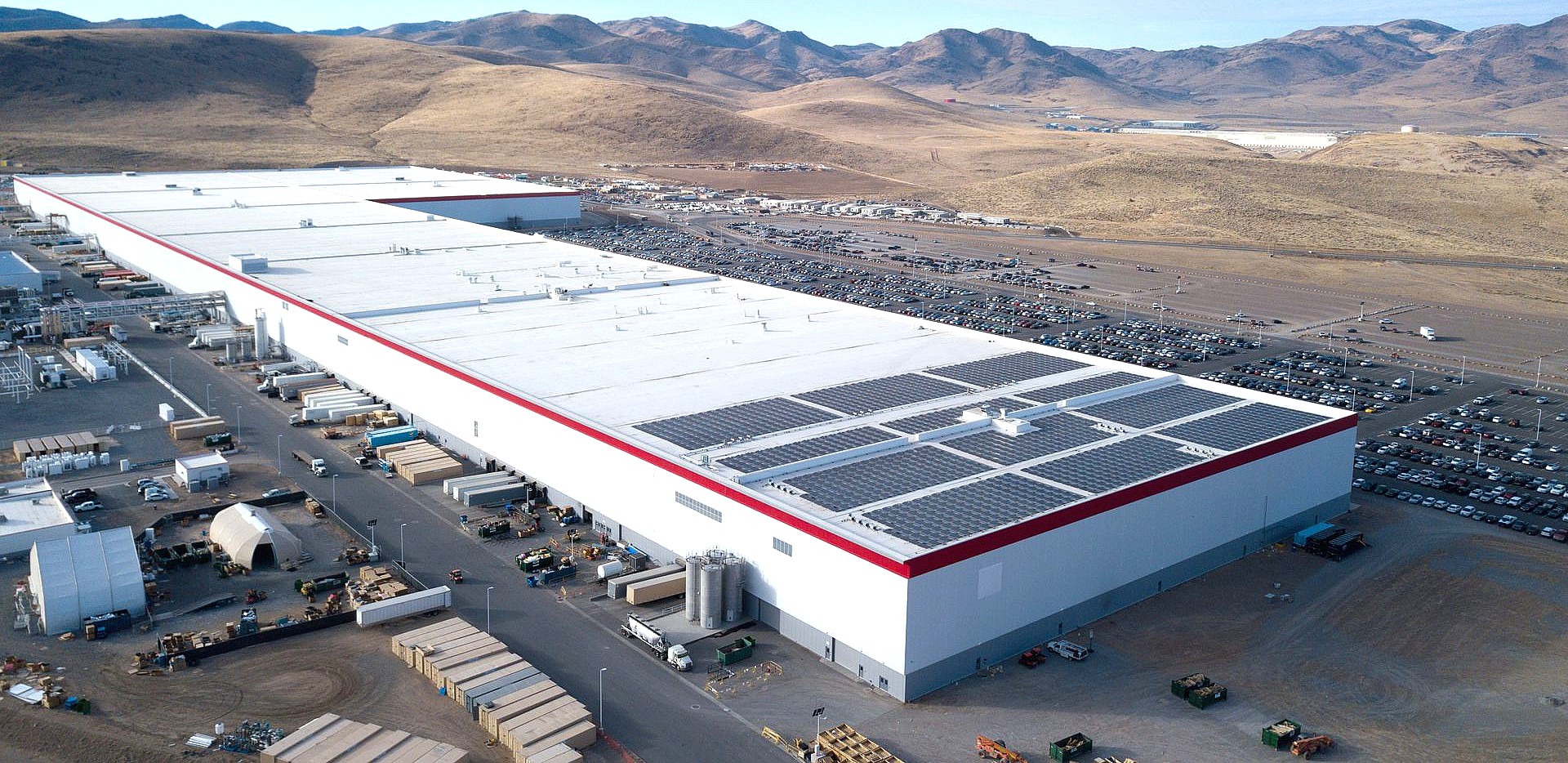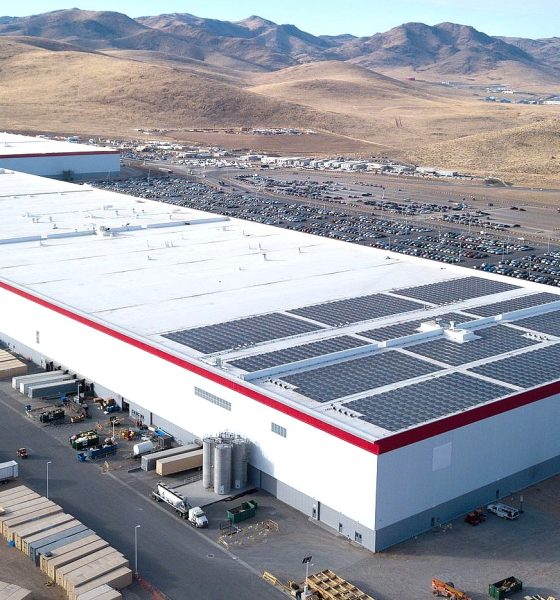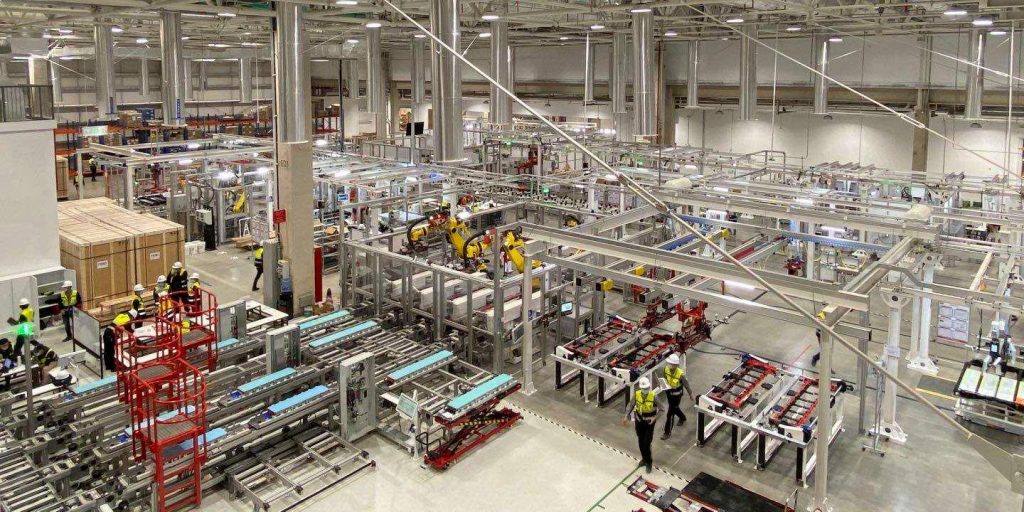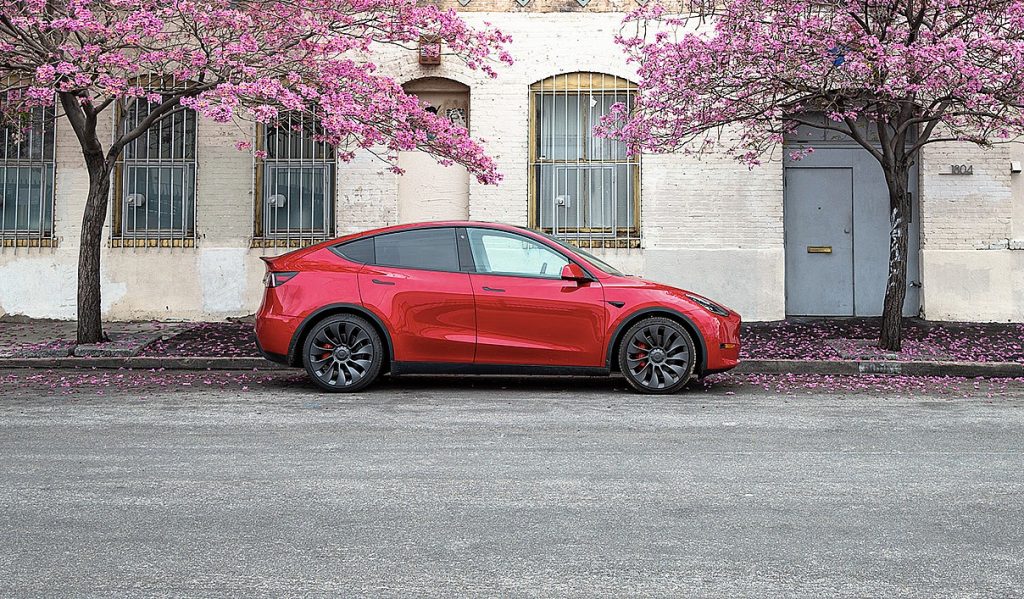

News
Tesla’s zero-cobalt battery goes beyond price parity, it’s a strike to gas cars’ jugular
It is no secret that Tesla is pursuing a million-mile battery. This battery will be so advanced, it would be able to stand the most stressful conditions for electric vehicles without compromising its quality and longevity; and when used for energy storage devices, it could last decades with regular use. If recent reports are any indication, it appears that Tesla’s million-mile battery could very well be the factor that would allow sustainable transportation to go for fossil fuels’ jugular.
One key factor that is still blocking the electric vehicle movement is the price of batteries. For the longest time, it has been widely speculated that reducing battery production costs to $100/kWh is the key to EVs reaching price parity with their petrol-powered counterparts. A recent report from Reuters, citing individuals familiar with Tesla’s battery efforts, has noted that the cost of Tesla’s batteries could fall even lower than $100/kWh.
Tesla is reportedly poised to start using batteries that it developed with China’s Contemporary Amperex Technology Ltd. (CATL) in the near future, with some reports speculating that the new cells could be rolled out to the Made-in-China Model 3 later this year. This battery, which will be cobalt-free, is reportedly a solid step towards a full rollout of Tesla’s million-mile battery. These batteries are still set to be improved as well, with the cells’ energy density and storage capacity being optimized over time.

Estimates indicate that CATL’s cobalt-free lithium iron phosphate battery packs for Tesla have fallen to $80/kWh, with the cost of the battery cells themselves dropping to about $60/kWh. Provided that these estimates are accurate, Tesla’s electric cars will not only be able to meet the $100/kWh target and meet price parity with gas powered cars, the company’s vehicles could actually become cheaper than their petrol-powered counterparts in the future.
Battery expert Shirley Meng, a professor at the University of California San Diego, noted that these costs, even for more expensive NMC cells, would drop even further when battery recycling comes into the picture. Fortunately for Tesla, there are signs that a serious effort to recycle batteries is underway. Reports indicate that the electric car maker is working steadily to recycle and recover key materials in its batteries, such as nickel, cobalt, and lithium.

Tesla’s efforts at recycling its batteries have been known for some time, considering the company’s focus on sustainability. These efforts are being pushed through Redwood Materials, a firm that’s focused on recovering vital battery components. Interestingly enough, Redwood Materials is headed by JB Straubel, a co-founder and longtime Chief Technology Officer of Tesla. Straubel is an authority in batteries, as evidenced by the fact that Elon Musk was already sponsoring his battery research even before both of them joined Tesla.
If Tesla can master battery recycling, and if it can reduce its battery costs to $80/kWh and below, the company’s electric vehicles could become even more competitive in the auto market. As it is, Teslas are still quite expensive compared to their gas-powered counterparts due to their batteries’ costs, and yet, some of the company’s vehicles like the Model 3 are already dominating established gas-powered cars like the BMW M3 on the market. One can only imagine how far Tesla could go with a vehicle like the Model Y, which caters to the hyper-popular crossover market, and a million-mile battery whose costs are down to less than $100/kWh.
With Teslas reaching or even exceeding price parity with gas powered rivals, there will be very little incentive for car buyers to purchase petrol-powered cars over electric vehicles. Premium EVs, after all, are cheaper to run, more powerful, and far cleaner. The million-mile battery may only be one of the things that Tesla is working on to optimize its vehicles, but it goes a long way towards the company’s fight for sustainability.

News
Tesla ships out an update for everyone that California caused
“This change only updates the name of certain features and text in your vehicle,” the company wrote in Release Notes for the update, “and does not change the way your features behave.”

Tesla has shipped out an update for its vehicles that was caused specifically by a California lawsuit that threatened the company’s ability to sell cars because of how it named its driver assistance suite.
Tesla shipped out Software Update 2026.2.9 starting last week; we received it already, and it only brings a few minor changes, mostly related to how things are referenced.
“This change only updates the name of certain features and text in your vehicle,” the company wrote in Release Notes for the update, “and does not change the way your features behave.”
The following changes came to Tesla vehicles in the update:
- Navigate on Autopilot has now been renamed to Navigate on Autosteer
- FSD Computer has been renamed to AI Computer
Tesla faced a 30-day sales suspension in California after the state’s Department of Motor Vehicles stated the company had to come into compliance regarding the marketing of its automated driving features.
The agency confirmed on February 18 that it had taken a “corrective action” to resolve the issue. That corrective action was renaming certain parts of its ADAS.
Tesla discontinued its standalone Autopilot offering in January and ramped up the marketing of Full Self-Driving Supervised. Tesla had said on X that the issue with naming “was a ‘consumer protection’ order about the use of the term ‘Autopilot’ in a case where not one single customer came forward to say there’s a problem.”
This was a “consumer protection” order about the use of the term “Autopilot” in a case where not one single customer came forward to say there’s a problem.
Sales in California will continue uninterrupted.
— Tesla North America (@tesla_na) December 17, 2025
It is now compliant with the wishes of the California DMV, and we’re all dealing with it now.
This was the first primary dispute over the terminology of Full Self-Driving, but it has undergone some scrutiny at the federal level, as some government officials have claimed the suite has “deceptive” names. Previous Transportation Secretary Pete Buttigieg was one of those federal-level employees who had an issue with the names “Autopilot” and “Full Self-Driving.”
Tesla sued the California DMV over the ruling last week.
News
Tesla workers push back against Giga Berlin unionization
“IG Metall did not succeed in Giga Berlin‘s works council election earlier today. The union share was reduced from nearly 40% in 2024 to 31% in 2026! This is a clear message by the Giga Berlin team towards an independent co-determination! The list called Giga United, led by the current chairwoman, Michaela Schmitz, received the most votes with more than 40%! Good news for Giga Berlin!”

Tesla workers pushed back against unionization efforts at Gigafactory Berlin, and over the past few years, there has been a dramatic decrease in interest to unionize at the German plant.
Gigafactory Berlin Plant Manager André Thierig announced on Wednesday that IG Metall, the European union group, saw its share reduce from 40 to 31 percent in 2026 as employees eligible to vote on the issue. Instead, the Giga Berlin team, known as Giga United, received the most votes with more than 40 percent.
BREAKING! 🚨
IG Metall did not succeed in Giga Berlin‘s works council election earlier today. The union share was reduced from nearly 40% in 2024 to 31% in 2026!
This is a clear message by theGiga Berlin team towards an independent co-determination!
The list called Giga…
— André Thierig (@AndrThie) March 4, 2026
Thierig gave specific details in a post on X:
“IG Metall did not succeed in Giga Berlin‘s works council election earlier today. The union share was reduced from nearly 40% in 2024 to 31% in 2026! This is a clear message by the Giga Berlin team towards an independent co-determination! The list called Giga United, led by the current chairwoman, Michaela Schmitz, received the most votes with more than 40%! Good news for Giga Berlin!”
There were over 10,700 total employees who were eligible to vote, with 87 percent of them turning out to cast what they wanted. There were three key outcomes: Giga United, IG Metall, and other notable groups, with the most popular being the Polish Initiative.
The 37-seat council remains dominated by non-unionized representatives, preserving Giga Berlin as Germany’s only major auto plant without a collective bargaining agreement.
Thierig and Tesla framed the outcome as employee support for an “independent, flexible, and unbureaucratic” future, enabling acceleration on projects like potential expansions or new models. IG Metall expressed disappointment, accusing management of intimidation tactics and an “unfair” campaign.
The first election of this nature happened back in 2022. In 2024, IG Metall emerged as the largest single faction with 39.4 percent, but non-union lists coalesced for a majority.
But this year was different. There was some extra tension at Giga Berlin this year, as just two weeks ago, an IG Metall rep was accused by Tesla of secretly recording a council meeting. The group countersued for defamation.
Tesla Giga Berlin plant manager faces defamation probe after IG Metall union complaint
This result from the 2026 vote reinforced Tesla’s model of direct employee-management alignment over traditional German union structures, amid ongoing debates about working conditions. IG Metall views it as a setback but continues advocacy. Tesla sees it as validation of its approach in a competitive EV market.
This outcome may influence future labor dynamics at Giga Berlin, including any revival of expansion plans or product lines, which Musk has talked about recently.
News
SpaceX President Gwynne Shotwell details xAI power pledge at White House event
The commitment was announced during an event with United States President Donald Trump.

SpaceX President Gwynne Shotwell stated that xAI will develop 1.2 gigawatts of power at its Memphis-area AI supercomputer site as part of the White House’s new “Ratepayer Protection Pledge.”
The commitment was announced during an event with United States President Donald Trump.
During the White House event, Shotwell stated that xAI’s AI data center near Memphis would include a major energy installation designed to support the facility’s power needs.
“As you know, xAI builds huge supercomputers and data centers and we build them fast. Currently, we’re building one on the Tennessee-Mississippi state line. As part of today’s commitment, we will take extensive additional steps to continue to reduce the costs of electricity for our neighbors…
“xAI will therefore commit to develop 1.2 GW of power as our supercomputer’s primary power source. That will be for every additional data center as well. We will expand what is already the largest global Megapack power installation in the world,” Shotwell said.
She added that the system would provide significant backup power capacity.
“The installation will provide enough backup power to power the city of Memphis, and more than sufficient energy to power the town of Southaven, Mississippi where the data center resides. We will build new substations and invest in electrical infrastructure to provide stability to the area’s grid.”
Shotwell also noted that xAI will be supporting the area’s water supply as well.
“We haven’t talked about it yet, but this is actually quite important. We will build state-of-the-art water recycling plants that will protect approximately 4.7 billion gallons of water from the Memphis aquifer each year. And we will employ thousands of American workers from around the city of Memphis on both sides of the TN-MS border,” she noted.
The Ratepayer Protection Pledge was introduced as part of the federal government’s effort to address concerns about rising electricity costs tied to large AI data centers, as noted in an Insider report. Under the agreement, companies developing major AI infrastructure projects committed to covering their own power generation needs and avoiding additional costs for local ratepayers.








